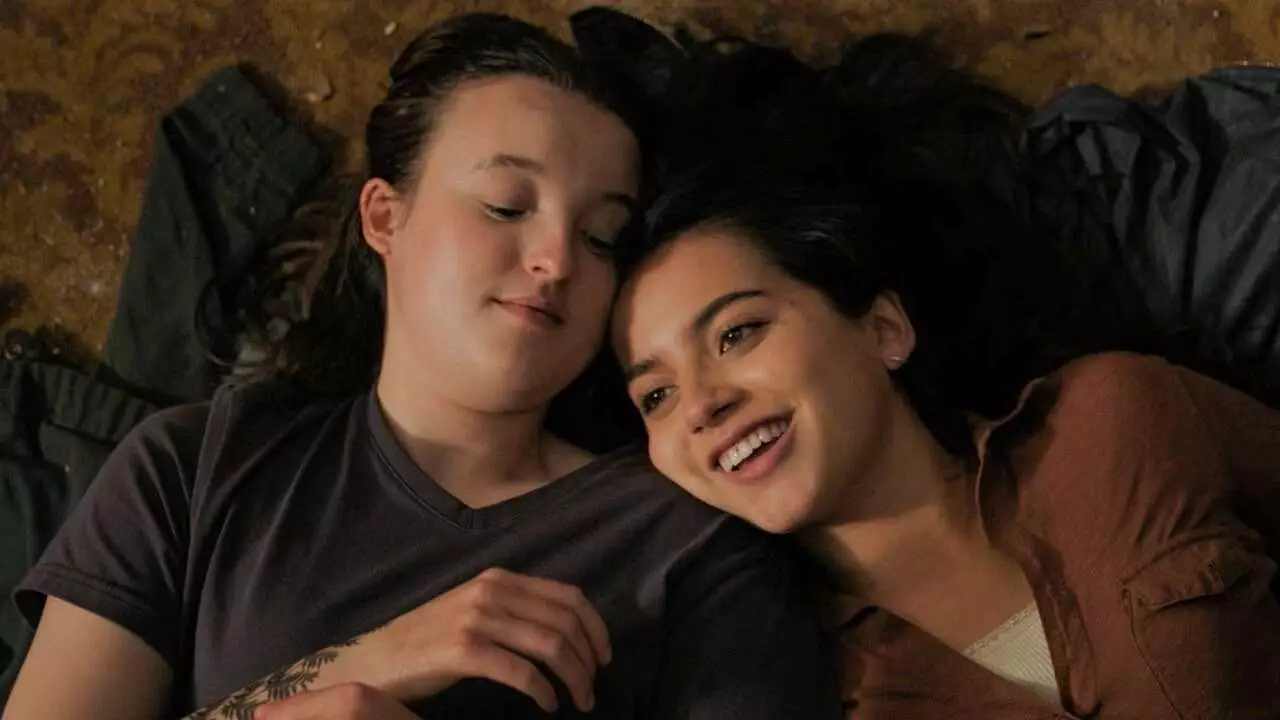HBO’s adaptation of *The Last of Us* has served as a stunning testament to the power of storytelling, seamlessly weaving the intricate narrative of a decaying world ruled by fungal infection and human despair. With Season 2 making waves across social media and earning rave reviews, it has become clear that the show transcended mere adaptation — it has evolved into a cultural phenomenon that resonates deeply, not just with gamers but with a wider audience. In an era where fantasy genre programming is rife, *The Last of Us* has emerged as an emotional juggernaut, fulfilling the void left behind by iconic series like *Game of Thrones*.
As viewers dove back into the harrowing experiences of Ellie and her companions, the enthralling storytelling came packaged with unexpected challenges —namely, the polarized reactions stemming from an increasingly vocal segment of the fanbase. Despite critics recognizing the depth and artistry of its narrative, online user reviews have presented a glaring dichotomy, marking the show with severe criticism while the critic scores soar.
The Paradox of Critical Acclaim vs. User Reactions
Season 2 has garnered a solid Metacritic score of 81, showcasing its acceptance among industry professionals. Yet, the user score tells an alarming story: a significant portion of fans reacted negatively, with more than half registering the lowest possible ratings. This discordance begs the question: what drives such drastically disparate evaluations? Critics often cite well-crafted character arcs and emotional highs, while disgruntled viewers have fixated on what they term “woke culture.” Their commentary lacks substantive critique and frequently degenerates into a simplistic longing for “traditional” representation.
This reaction, rooted chiefly in the portrayal of diverse identities, highlights a larger societal tension regarding representation in popular media. In a show that centralizes rich narratives of love, survival, and humanity amidst chaos, the refusal to engage with these themes through a contemporary lens strikes as regressive. Moments that require sensitivity, such as Ellie and Dina’s unfolding romance, face undue backlash, shifting the focus from storytelling to reactionary sentiment.
Reflecting on Progressive Representation
The Season 2 episode “Day One” skillfully portrays Ellie’s growth and burgeoning romance with Dina, alongside the emotional weight of the revelation of Dina’s pregnancy with her deceased ex-boyfriend Jesse. New takes on beloved narratives often ignite apprehension among entrenched fans, but the beauty of adaptations lies in their ability to reinterpret and expand upon the source material. Where some viewers may see a departure from tradition, others perceive space for richer stories that celebrate diversity.
Furthermore, the show’s deft handling of tense moments juxtaposed with intimate ones illustrates its commitment to nuanced storytelling. As Ellie and Dina navigate an apocalyptic landscape, we witness the duality of survival—a world where hearts can still beat, love can bloom, and hope can persist.
Yet, the incessant need for certain viewers to attack what they perceive as deviation from established norms indicates not just a resistance to change but also a qualitative misunderstanding of the medium. Critique devoid of consideration risks undermining progress within storytelling, encapsulating a desire for the comfort of familiarity over the excitement of exploration.
The Broader Implications of Dismissing Nuance
At a time when the conversation surrounding representation and inclusion is increasingly vital, the backlash against *The Last of Us* serves as a microcosm of wider societal tensions. The rejection of progressive stories is not merely about this show; it implicates the entire creative industries and their responsibility to reflect the diverse realities of modern life. The backlash in response to the emotional love scenes and complex character arcs signals missed opportunities for growth and understanding among viewers.
The success of the episode that featured Bill and Frank’s poignant love story exemplifies this tension. Despite the criticism surrounding that moment, the episode not only won critical acclaim, including an Emmy for Nick Offerman but also reaffirmed the show’s potential to challenge conventions while advancing narratives celebrating love, no matter how unconventional the setting.
*The Last of Us* stands as a creative endeavor that invites robust dialogue. By telling multifaceted stories in stark environments, it asks viewers to reflect on what it means to be human against all odds—ultimately reminding us why storytelling matters and how it can bring us together, even in our most divisive moments.

